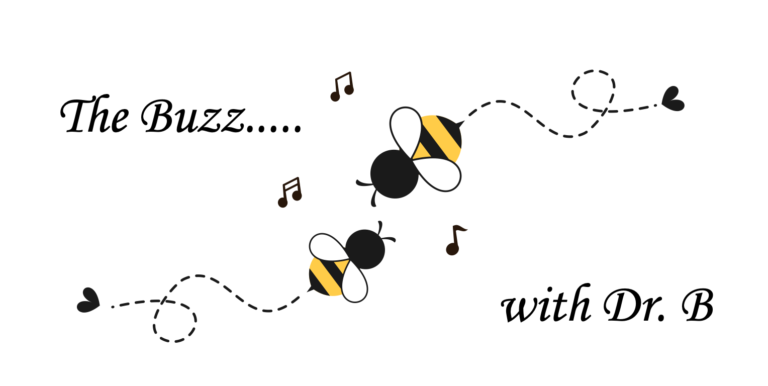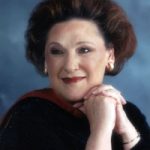

Remembering my first trip to the symphony
In second or third grade, we went on a field trip to a nearby arts center and saw the Chicago Symphony. I had never been to anything like that before, or do I ever recall seeing a violin before that. I had no idea why the first chair (concertmaster) was empty and remember thinking that they must just be running really late. I have no recollection of what they were playing, but I remember seeing all the bows of all the instruments going up and down at the same time together. Being 9 years old, I decided that they must all be connected somehow, like with a string that’s above the stage, and it was then my life goal to be the person who made the bows move like that. Twelve years later, in a way I kind of am the person who makes the bow move… and I was slightly disappointed to find out that they’re not all connected!
The Magic of Opera
by Kathleen Buckner, Director of Educational Outreach at Ars Nova. Published in South Huntsville Neighbors
In the summer before I started high school, I was in my first opera. Ars Nova was holding auditions for the chorus, and I was already interested in taking voice lessons there, so I auditioned and (with a stroke of luck) became a part of the chorus for The Ballad of Baby Doe by Douglas Moore. The music was hard, but the people were wonderful, and I remember the moment I fell in love with opera. If you don’t know the show or the music, I encourage you to find a recording of “The Silver Aria” by Beverly Sills, because it is stunning. There is a point in the opera where there is chaos, and the whole chorus is on stage and the music is rhythmic and intense. Then, to solve the cause of the ruckus, Baby Doe sings “The Silver Aria”, and I was moved to tears every night. It was then that decided I wanted to move people’s hearts too. I began lessons that fall, and what I experienced at Ars Nova was truly special. The community was kind and encouraging, and inclusive.
Ars Nova also set me up for success in college. I studied vocal performance at The University of Southern Mississippi, and if I had not been a part of some of the other programs Ars Nova offered, I would not have been as successful at school. Ars Nova offered theory classes and sight singing and ear training classes every week, which were free to take if you were in lessons. They also offered various classes over the summer, like an IPA (International Phonetic Alphabet) class, and various acting and singing camps. These programs helped me become a better musician, and a better actor, as well as a better singer. You study all the above in college and having a foundation in them gave me a head start.
I have been teaching with Ars Nova for almost four years now, and I am now the Director of Educational Outreach. The pandemic has changed the way we interact with the world, and I have had time to think about how to engage with the community to begin conversations about opera and classical music in a way that is accessible to everyone. If you attended our show in January, I taught the audience how to sing in Russian, and we all had a good time, but I wish more people could have been there to learn and experience live music. Opera makes more sense when it’s experienced instead of heard. I am excited about a program we are developing at Ars Nova that can be brought into schools, or taught in pre-show lectures, or posted on the web, which introduces people to opera in a way that doesn’t involve sitting through an entire opera.
However, it is my belief that everyone deserves to experience the joy, beauty, and absolute drama of an opera, and Ars Nova is committed to nurturing that love in our community and nurturing a love of music in our students.
A Singer Is an Actor Using a Melody By Dr. Ginger Beazley
Check it out online in the South Huntsville Neighbor’s March addition.
Many years ago, a young farm girl met a remarkable woman who was equally qualified to teach piano, acting and voice. She was a small woman with snow white hair piled high on her head and more energy and authority in her voice and body than she deserved to have at a rather advanced age. Her platitudes have guided that young girl through years of singing and decades of teaching others to sing. Sweet or gentle are not words one would use to describe her. But passion, intensity and knowledge are.
“If I can’t understand your words, PLAY AN ORGAN” With her finger poised above the girl’s arm she depressed it and muttered, “Just what I thought—PUTTY!” “A singer is an actor using a melody!”
Dr. Grace Levinson was a life changer for me, yes; I was young once and came from a farm in Oklahoma, The intention to communicate a text when singing was and still is not something we hear a lot about. Learning a song meant memorizing the text while studying the rhythm, melody and chord structure. If we worked in a foreign language, an accurate word for word translation was found and expected to be written in the music. So when memorizing, we were learning the diction and vocabulary of the language in which we were singing as a first, not last step. When singing a role in an opera, all of the above happened in the first two or three weeks of learning the part. Then the work began to discover everything possible about that person (character) by examining the entire work looking for nuggets that give us a skeleton picture based on the FACTS of the libretto. However, skeletons don’t sing well, so the work of creating flesh and blood began by identifying characteristics that the performer was able to identify with most easily so the role becomes collaboration between, libretto, music and the individual performer. And that’s truly where the fun begins. We learn things not only about this role, but about ourselves that we then choose to free for the character to expose on stage. Did I mention that performing singers cannot be sissies? Allowing our emotions, past and current to tell the tale requires courage and an uncommon love for music and the audience.
To finish with a few practical rules for communicating in a song or aria.
Articulation requires flexibility in lips, tongue and jaw. Think of the consonants as generally occurring on the lips with only a few happening in the oral cavity.
With perfect articulation, you may still leave your listeners with the need of a translator IF the correct syllables are not stressed. English, German and Italian are all highly inflected languages with French being the ‘odd man out.’ Therefore, correctly stressed or accented syllables give your audience easy access to your meaning.
The third voice in this trio is dramatic intention. Why? And what led you to this experience? And what do you intend passionately to share?
Joan Dornnemann often gave master classes in presenting an aria or song in all its glory. An assistant conductor at the Metropolitan Opera and for many years a primary coach and prompter for the art- ists who sang on that renowned stage, she was able to bring a singer from mediocrity to outstanding in a remarkably short time. Joan insisted that singers know not just one word translation but at least three to bring layers to the acting and the singing. And she insisted on this in preparing English as well as foreign language literature. Ms. Dornnemann wanted us to communicate using the same process, singing as speaking. Thank you, Joan.
